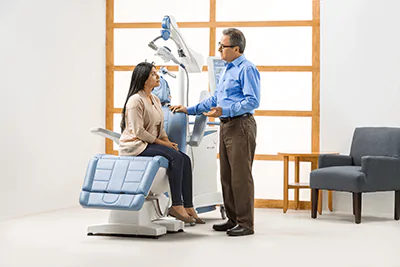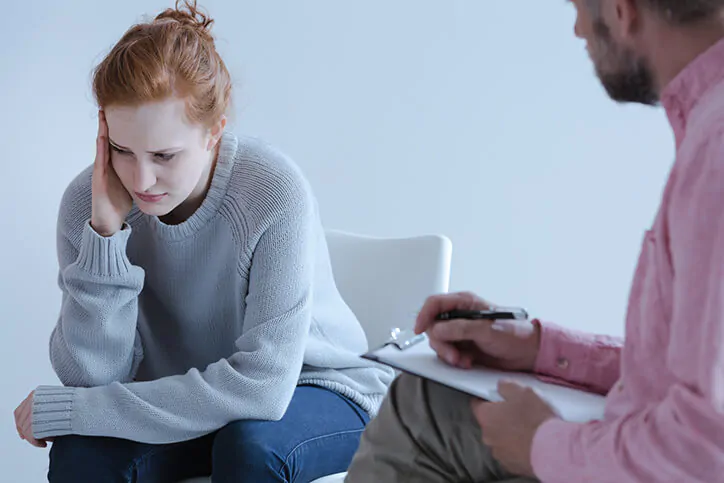Why Do I Feel Like I Want to Die?
Sometimes I Feel Like I Want to Die
You are not alone and it is not uncommon to think…I want to die. Each day, someone somewhere entertains the idea of suicide. Many people have either experienced transient feelings of wanting to die at some point in their life, or have experienced these feelings consistently over long periods of time. It is important to realize that while sometimes these feelings accompany suicidal plans or attempts or self-injury, this may not be the case for everyone.
Sometimes these feelings are triggered by a sense that life has become unbearable or that the currently experienced psychological or circumstantial pain is intolerable. It may even flow from a belief that “something is inherently wrong with me” or “pain is unavoidable in my life”, accompanied by thoughts that loved ones might be “better off without me”. There are also some individuals who experience the desire to die and can identify no reason or logical explanation to their thoughts, it is simply a feeling they cannot control.
Feeling like I want to die versus feeling actively Suicidal
Feeling suicidal can mean that you are creating an active plan of action. Feeling like you want to die means that you are having thoughts and thoughts only, no plan of action has been developed to act on the expressed feelings. It is a matter of life and death to understand the difference.
Experiencing suicidal feelings is life threatening and imminently dangerous and therefore requires immediate and emergency intervention. If you are feeling this way, and feel that you might be a harm to yourself, please stop reading this article and contact the local authorities or the suicidal hotline number listed below:
National Suicide Prevention Lifeline at 1-800-273-8255 (1-800-799-4TTY).
Experiencing suicidal ideation, or feeling the desire to die is less imminent, but by all means it is not less important. Continuously feeling like you want to die can lead to suicidal actions, whether through self-injury or in making preparations, thus making this serious issue critical to address.
Again, if you are experiencing thoughts of imminent suicide, you need to immediately put into effect a safety plan. This means getting yourself to an emergency room or calling a suicide hotline. If you are not experiencing imminent suicidal thoughts, you may not be needing emergency intervention, but you are needing to immediately address this very serious issue, and create a safety contract, or a plan of action that, as described above, will be put into effect in the case of more severe ideation that borders on intention. Not only are these interventions available, but very often they really help.
Why do I feel this Way?
The fantasy of escape. The path of least resistance. The easy way out. Call it whatever you’d like, but sometimes we feel like we can’t ‘fight the good fight’ anymore and we simply want ‘out.’ Time and time again we learn that those who consider suicide often do so not because they want to die, but because they want the pain to end.
What must be realized is that happiness is not the absence of pain. Rather, happiness and inner-peace come from having the courage to accept that we will never be ‘pain-free.’ Pain is an unfortunate and inescapable part of the human condition and it is up to us to learn how to manage the pain in such a way that we don’t feel the need to resort to extreme measures to escape it.
Fantasizing, or even planning our death, puts all our attention and energy on a false belief of our own power. We suddenly feel ‘in-control’ of all the painful experiences in our life that previously were controlling us. However, this newfound power and control is only a deception. The intense focus on our death is actually exercising control over us by preventing our ability to fully experience life. Yearning to die provides us with an escape from facing our pain, but it comes at a cost. All our focus becomes tuned in on everything outside of us and we avoid dealing with our internal pain and problems.
Death is a part of life. Why is focusing on death a problem?
Death is a normal part of the life cycle. Some argue that it is even wise to prepare for death with planning and provisions. This is, however, very different from an individual trying to wrestle control over this naturally occurring process.
There is a very interesting logic that presents itself here, that in the more we learn to live with courage to face and manage our pain, the less we actually need to focus on controlling our death. Death only becomes a problem when we try to step-in and take charge of its process, whereas left to its own devices, death is natural.
Our focus has to shift to become re-centered on learning how to manage all the pain and discomfort in our lives, instead of allowing it to drive us to focus on death as a means of escape. We must embrace those feelings and give them a voice, not authority to create a preoccupation within our minds.
How do I manage my feelings instead of thinking about dying?
Asking for help to learn healthy ways to cope and solve problems is a great first start to begin focusing our energy back on life. Learning to live full and meaningful lives essentially prepares us for a natural death that occurs without having to assert control over the process. We must learn to accept that pain is a part of our lives and is the backdrop to our happiness.
Taking control of and planning our death does not make the pain go away, it mostly just multiplies it and transfers it to someone else, often entire communities of people. However, with courage, newly learned coping and problem-solving skills, and the spirit of acceptance, we can be better prepared to accept what happens to us during our lives. Begin letting go of the need to control your death. It is not ours to control. Instead put the focus on managing all the feelings driving your energy to control your environment.
It may seem like death is the only answer or that it will cause all the pain to go away. However, this is a deceitful belief and simply not true. Being dead means just that, being dead. There is no relief. No joy. No painlessness. There is just nothing. You are a non-entity. The only true way to obtain relief from the pain is to learn how to live with meaningfulness, courage, and fulfillment. Death does not allow us a “re-do.” Death gives us no second chance to learn the necessary skills that allow us to enjoy our lives and create meaning in the path that we choose for ourselves.
What are my Options?
Have the courage to reach out for support. Support can come from a professional counselor, a spiritual leader or even a trusted friend. Accept the possibility that you have within you the courage to learn new ways of thinking, and feeling, and that there may be other solutions to manage your pain.
Consider that your pain might be more manageable then you initially think. Give someone a chance to help you re-examine your style of managing your pain and allow for new thoughts and coping skills to take effect.
Yes, it is hard to take that first step, but can you do it anyway?
Our friendly and understanding admissions counselors are waiting to take your call.
However, if you are in need of immediate assistance, don’t wait, call us at (949) 629-3730 or call the number below:
National Suicide Prevention Lifeline at 1-800-273-8255 (1-800-799-4TTY).
References
Suicide Statistics – American Foundation for Suicide Prevention (AFSP)
https://afsp.org/suicide-statistics/
Safety Plan – The National Suicide Prevention Lifeline
Printable Safety Plan Template
https://suicidepreventionlifeline.org/wp-content/uploads/2016/08/Brown_StanleySafetyPlanTemplate.pdf



